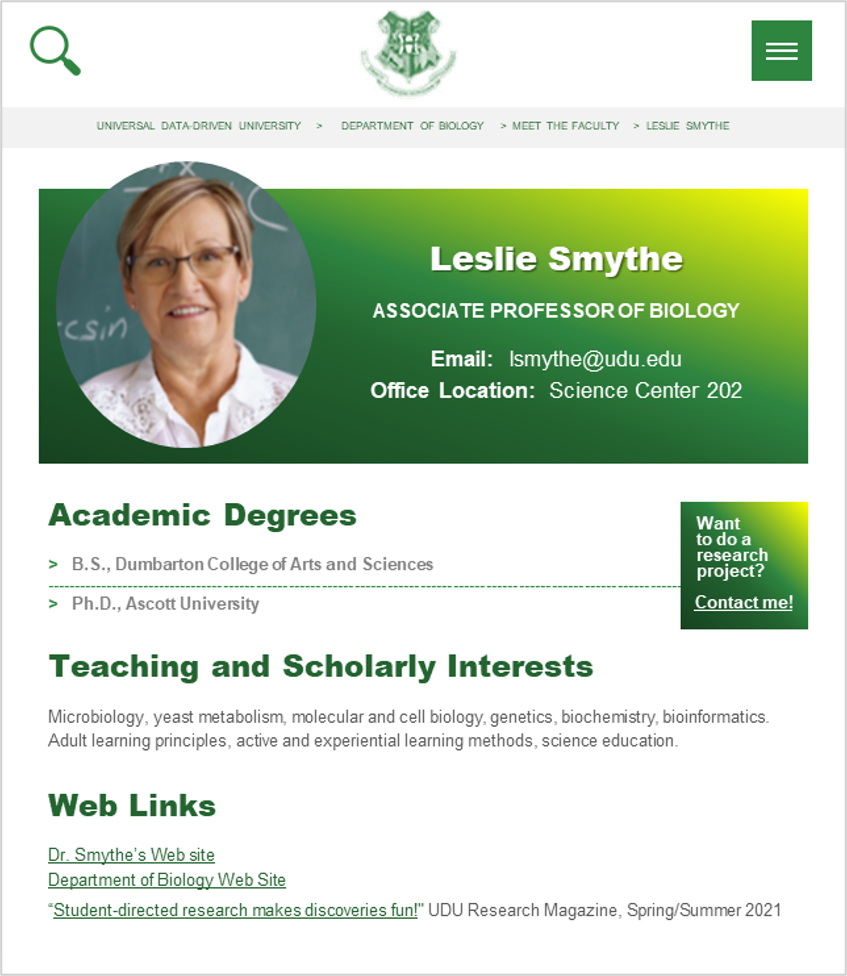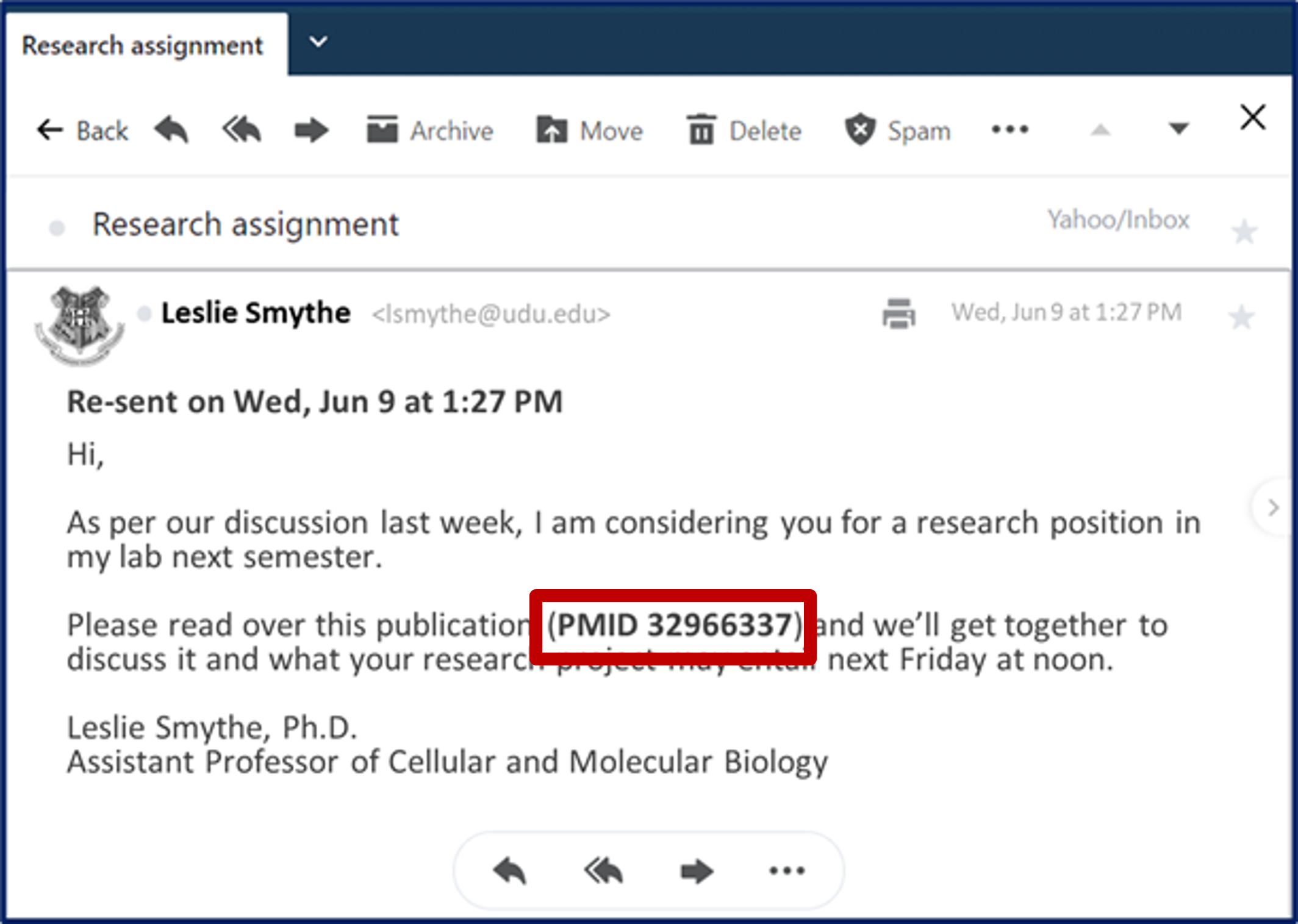Our Case Study
A common practice is to find a professor who has interesting research and a good reputation mentoring students and ask to meet with them about the possibility to join their lab to do a research project. Often that professor will provide a scientific publication related to that work and ask you to find and read it, and then come back in for another meeting to discuss what they've learned.
To prepare yourself for the follow-up meeting as well as for beginning an actual research project - you should consider going above and beyond just reading the article to find supporting information. This will enhance your own knowledge, but also really impress the professor that you:
- have a good understanding of biology
- are comfortable trying new things and using technology
- are a hard worker, learn quickly, and are eager to support their research efforts.
Today's scenario
 You recently attended a lecture by Dr. Leslie Smythe at your university. Her research on yeast biology and how it relates to food and drink seems really interesting and you have heard that she is a really excellent mentor for students. At the end of her talk you asked her about her research lab and if there was possiblility of joining a project. She sent you an invitation to come talk to her and learn more about you.
You recently attended a lecture by Dr. Leslie Smythe at your university. Her research on yeast biology and how it relates to food and drink seems really interesting and you have heard that she is a really excellent mentor for students. At the end of her talk you asked her about her research lab and if there was possiblility of joining a project. She sent you an invitation to come talk to her and learn more about you.The talk seemed to go well and she sent a follow-up Email.

Your plan
NOTE: This is an NCBI workshop so we will show you useful things on the NCBI website.
| STEP 0: |
You can get a free NCBI account where you can create a "folder" (a.k.a. collection) to store a direct link to that paper and other cool things you find on the NCBI website. |
| STEP 1: |
Figure out how to find that paper and access it. Then, devise a strategy to look for other helpful information based on the key points in the paper. |
| STEPS 2-6: |
Do some research on the NCBI website and collect those page ("database record") links. |
| STEP 7: |
Share the collection with your professor just before you go meet with her again. |
| THEN..... | Inpress your professor and start your research career! |
| Let's get started! |
Last Reviewed: June 27, 2023

